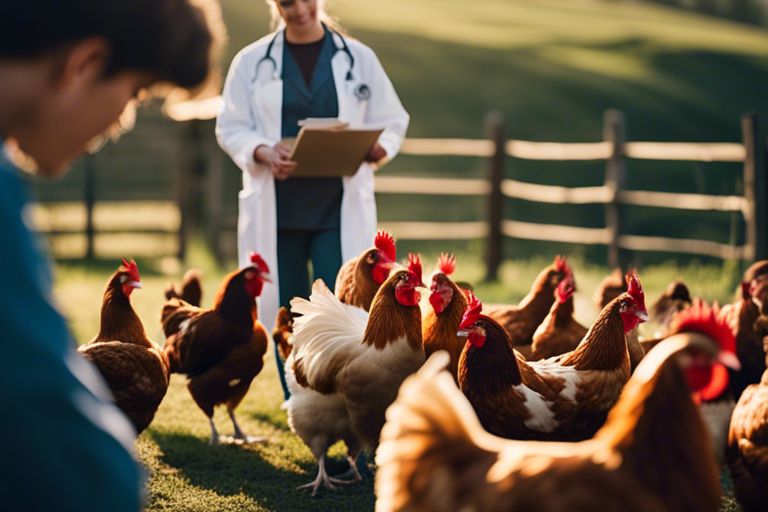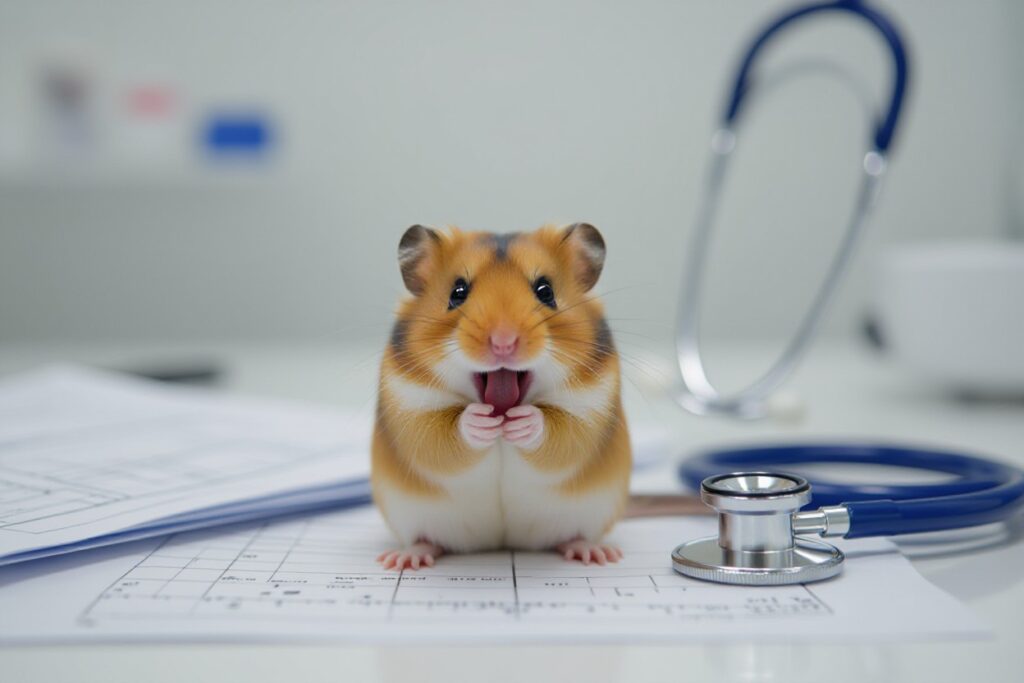Most chicken owners may not realize that their feathered friends can be prone to a variety of health issues. Just like any other animal, chickens require proper care and attention to maintain their well-being. In this blog post, we will explore some of the most common health problems that chickens may encounter, including respiratory infections, parasites, and nutritional deficiencies. By understanding these health issues, you can better equip yourself to identify symptoms early and provide the necessary care to keep your chickens happy and healthy.

Common Diseases in Chickens
Respiratory Infections
Your chickens are susceptible to various respiratory infections that can be caused by viruses, bacteria, or environmental factors. Symptoms may include coughing, sneezing, nasal discharge, and difficulty breathing. It is important to isolate sick birds and consult with a veterinarian for proper diagnosis and treatment to prevent the spread of infection to the rest of the flock.
Fungal Infections
Infections caused by fungi can affect the skin, digestive tract, respiratory system, or reproductive organs of chickens. Common fungal infections in chickens include Aspergillosis and Candidiasis. Aspergillosis can be contracted by inhaling spores from contaminated bedding or feed, while Candidiasis often affects the digestive system. Proper sanitation and hygiene practices, as well as a balanced diet, can help prevent fungal infections in your flock.

Parasitic Issues in Chickens
External Parasites
One common health issue that chickens face is infestation by external parasites such as mites, lice, and fleas. These parasites can cause irritation, feather loss, and even anemia in severe cases. Regularly checking your flock for signs of infestation and providing appropriate treatment is crucial in maintaining their health and well-being.
Internal Parasites
Any poultry owner should be aware of the threat posed by internal parasites like worms. Chickens can contract various types of worms such as roundworms, tapeworms, and coccidia, which can lead to weight loss, decreased egg production, and even death if left untreated. Implementing a regular deworming schedule and practicing good coop hygiene are crucial preventive measures.
Another important aspect to consider when dealing with internal parasites is the potential development of resistance to commonly used dewormers. Rotating between different classes of dewormers and consulting with a veterinarian for guidance on proper dosages and timing can help prevent the emergence of resistant parasites within your flock.

Nutritional Deficiencies and Management
Essential Nutrients for Chickens
With their unique dietary requirements, chickens need a balanced mix of necessary nutrients to stay healthy and productive. These include proteins, carbohydrates, fats, vitamins, and minerals. Proteins are necessary for growth and development, while carbohydrates provide energy. Fats are important for maintaining body temperature and storing energy. Vitamins and minerals play crucial roles in various bodily functions, such as bone development and overall immunity.
Identifying and Correcting Deficiencies
Correcting nutritional deficiencies in chickens is crucial to preventing health issues and maintaining optimal productivity. Key signs of deficiencies include poor growth, feather abnormalities, decreased egg production, and weakened immune systems. To identify deficiencies, conducting a nutritional analysis of the feed and consulting with a poultry veterinarian can be helpful. Once deficiencies are identified, adjustments can be made to the diet or supplementation provided to address the specific nutrient gaps.
Management: It is important to regularly monitor the overall health and behavior of your flock to catch any signs of nutritional deficiencies early. Working closely with a poultry nutritionist can help formulate balanced diets that meet the specific needs of your chickens. Additionally, providing access to fresh water, proper feed storage, and a clean living environment are necessary components of managing nutritional deficiencies in chickens.
Environmental Factors Affecting Chicken Health
After looking into various factors that can impact the health of your chickens, it is crucial to understand how environmental conditions play a significant role in ensuring the well-being of your flock.
- One key factor to consider is the housing and space requirements for your chickens. Adequate space is imperative to prevent overcrowding, which can lead to stress, aggression, and an increased risk of disease transmission. Ensuring proper ventilation and insulation in the coop is also vital to regulate temperature and humidity levels, especially in extreme weather conditions.
- Health
One crucial aspect of maintaining a healthy environment for your chickens is focusing on sanitation and disease prevention. Regularly cleaning and disinfecting the coop, feeders, and waterers can help prevent the spread of harmful pathogens. Additionally, implementing biosecurity measures, such as limiting visitors and quarantining new birds, can reduce the risk of introducing diseases to your flock. Any signs of illness should be addressed promptly to prevent further spread within the flock.
Sanitation and Disease Prevention
Factors such as proper waste management, regular cleaning of feed and water containers, and separating sick birds from the healthy ones are imperative steps in preventing the spread of diseases among your chickens. Implementing a vaccination program tailored to the specific diseases prevalent in your region can also help boost their immunity and overall health. By following these sanitation and disease prevention practices, you can create a healthy environment that promotes the well-being of your flock.
Summing up
Following this comprehensive guide on understanding common health issues in chickens, it is important for poultry owners to be vigilant and proactive in recognizing symptoms and seeking appropriate care. Whether it be respiratory issues, digestive problems, or parasites, early detection and treatment are key to ensuring the health and well-being of your flock. By implementing proper husbandry practices, providing a balanced diet, and maintaining a clean living environment, you can help prevent many health issues from occurring in the first place. Regular monitoring and consultation with a veterinarian will also be crucial in managing any potential health concerns. By staying informed and taking necessary precautions, you can help your chickens lead happy and healthy lives.
FAQ
Q: What are common health issues in chickens?
A: Common health issues in chickens include respiratory infections, parasites, fungal infections, and nutritional deficiencies.
Q: How can I prevent respiratory infections in chickens?
A: To prevent respiratory infections, ensure proper ventilation in the coop, avoid overcrowding, and keep the housing clean and dry.
Q: What are the signs of parasites in chickens?
A: Signs of parasites in chickens include decreased egg production, weight loss, feather loss, and visible parasites in or around the vent area.
Q: How can I treat fungal infections in chickens?
A: Fungal infections in chickens can be treated with antifungal medications prescribed by a veterinarian. Keeping the coop clean and dry can also help prevent fungal infections.
Q: What nutritional deficiencies can affect chickens?
A: Nutritional deficiencies such as lack of calcium, vitamin D, or protein can affect chickens’ health and egg production.
Q: How can I prevent nutritional deficiencies in chickens?
A: To prevent nutritional deficiencies, provide a well-balanced diet that includes layers feed, fresh water, and access to grit and oyster shells for calcium supplementation.
Q: When should I seek veterinary care for my chickens?
A: It is important to seek veterinary care for your chickens if you notice any signs of illness that do not improve with basic care, such as lethargy, decreased appetite, difficulty breathing, or unusual droppings.











